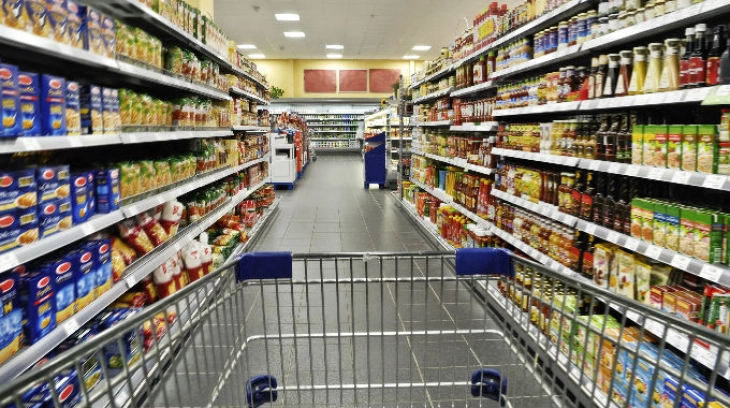Law banning unfair trading practices enters into force, price reduction expected for nearly 2,500 products
- The law banning unfair trading practices in the agricultural and food supply chain has entered into force, intended to further decrease product prices and permanently regulate trade. It covers nearly 2,500 products, for which the profit margin is limited to 10 percent, which is expected to lower their prices by 10 percent.

Skopje, 28 September 2024 (MIA) - The law banning unfair trading practices in the agricultural and food supply chain has entered into force, intended to further decrease product prices and permanently regulate trade. It covers nearly 2,500 products, for which the profit margin is limited to 10 percent, which is expected to lower their prices by 10 percent.
Under the law, in addition to the limited discount, traders will not be allowed to charge additional costs for marketing, representation, or for prominently displaying a specific product on the shelf.
Minister of Economy and Labour Besar Durmishi highlights that this law does not regulate trade margins, but instead bans the additional costs (fees) that suppliers have been required to pay for their products to be sold by buyers.

"With the implementation of this law, we expect long-term results and a reduction in the prices of these products by up to 10%. We anticipate the first results with reduced prices by the end of October, when we expect the inventory from previous contracts to be sold out and products to begin being sold according to the new contracts. The law was enacted on March 20, 2024, and traders and suppliers had a six-month period to align their contracts or establish new ones by September 27 at the latest. This means that, starting today, the effective implementation of this law begins,” Durmishi said.
The competent authority for overseeing the implementation of the Law is the Commission for the Protection of Competition, which monitors the application of the provisions of this law and initiates misdemeanor proceedings if any mandatory provision of the Law is violated.
Misdemeanor proceedings may be initiated either by the authorities themselves or at the request of an individual or legal entity with a legitimate interest in identifying a violation, and must be resolved within three months.
The Commission for the Protection of Competition publishes its decisions regarding violations on its website. The Law provides for penalties for both severe and lesser offenses, depending on the nature and impact of the violation.

The maximum penalty for the most serious violation can be up to 20,000 euros for a large trader and between 350 and 500 euros for the responsible person within the legal entity that is classified as a large trader. Penalties for minor violations depend on whether the offense was committed by a legal or natural person. The maximum fine for a minor violation that can be imposed in proceedings ranges from 5,000 to 6,000 euros for a large trader and from 350 to 500 euros for the responsible person within the legal entity that is classified as a large trader.
According to Minister Durmishi, during the next three months, non-compliance with the Law in new agreements will result in warnings, not fines. The government will partner with companies through the end of 2024 to confirm that contracts are correctly established and meet all legal criteria.
The government’s regulation limiting the profit margin to 10% on 73 basic food products in both wholesale and retail trade remains in place to protect consumers from price spikes until the law banning unfair trading practices yields its initial results.
Photo: MIA archive







